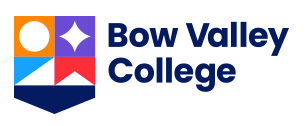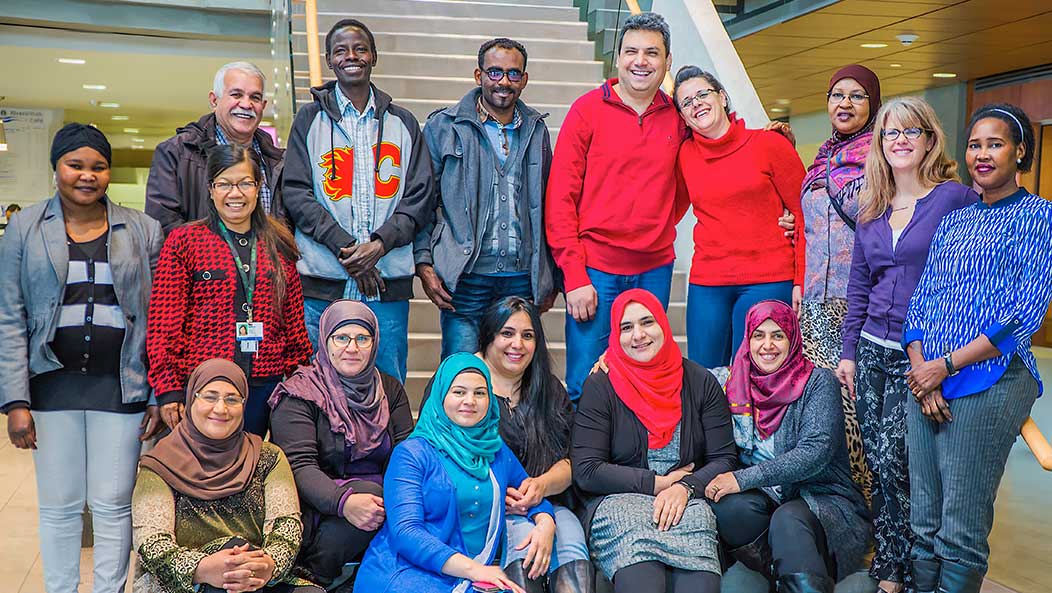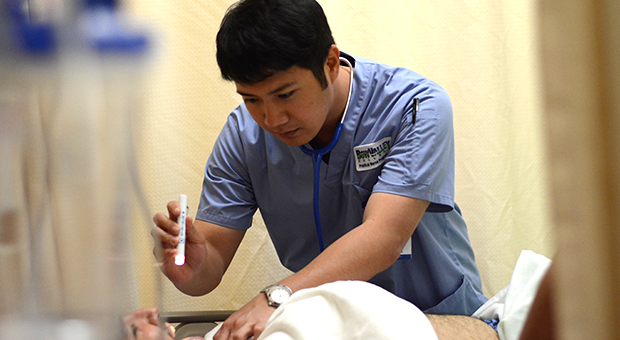Phases
Project Description
The project Intercultural Communicative Competence: A Professional Development Model for College Nursing Faculty combined experience garnered within the Centre for Excellence in Immigrant and Intercultural Advancement (CEIIA) at Bow Valley College (BVC) in both delivering professional development and in developing intercultural communicative competence (ICC) scenarios to produce a professional development model for enhancing faculty instruction.
This project investigated professional development models currently employed in faculty development and explored the particular needs of nursing faculty grappling with an increasingly diverse population of learners. The focus was on developing intercultural communicative competence and teaching and learning strategies for nursing faculty to aid learners in accessing content in nursing programs. This indirectly benefitted English language learners (ELL) in nursing programs (both Internationally Educated Nurses (IEN) and other ELL) by providing faculty with knowledge, skills and awareness, and supporting ELL in nursing programs through more intercultural competent instructional methodology and delivery.
Project Overview
- The project researcher conducted a literature review and a needs assessment with health care faculty.
- The training modules development was informed by the literature review, staff surveys, focus groups and the community of practice which formed in early fall 2012.
- The training workshop series was delivered to three cohorts of health care faculty.
- A certificate of participation was given to all of the participants upon completion of the workshop series.
- Participant testimonial supports the success of this project: "I am keenly aware of how culture can impact a learning environment and how I as an educator need to be responsive to culture and other types of diversity within a class. I am more aware just how unique we all are, even within the same culture. Being mindful is a great place to be after training such as this!"
PD Process
The workshop series was informed by the following process:
- increasing cultural desire: (to “want to” rather than to “have to” respond to the lived experience of diverse learners). Sample survey results indicated attitudinal openness (the desire) to deepen understanding of culturally diverse learners and improve teaching practices.
- developing cultural awareness: becoming aware of the complexity of their own culturally derived identity, values, assumptions and world view, as well as the perspective and biases that may get in the way of teaching all students equitably.
- building cultural knowledge: investigating the cultural worldview of learners, the impact of culture and language on learning as well as understanding the context of student’s lives (personal and academic).
- acquiring cultural skill: using knowledge of similarities and difference to make adjustments in the learning environment that will be beneficial to all learners (not just marginalized groups).
- engaging in cultural encounters: fostering a culturally inclusive climate in the classroom and structuring opportunities to interact with culturally diverse learners, seeking “windows” into their experiences.


